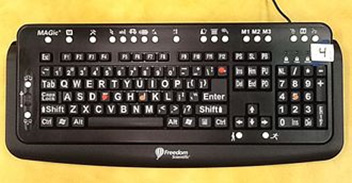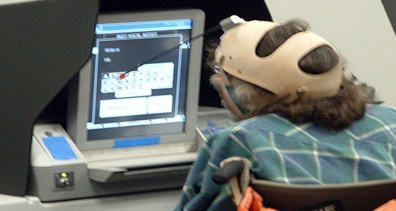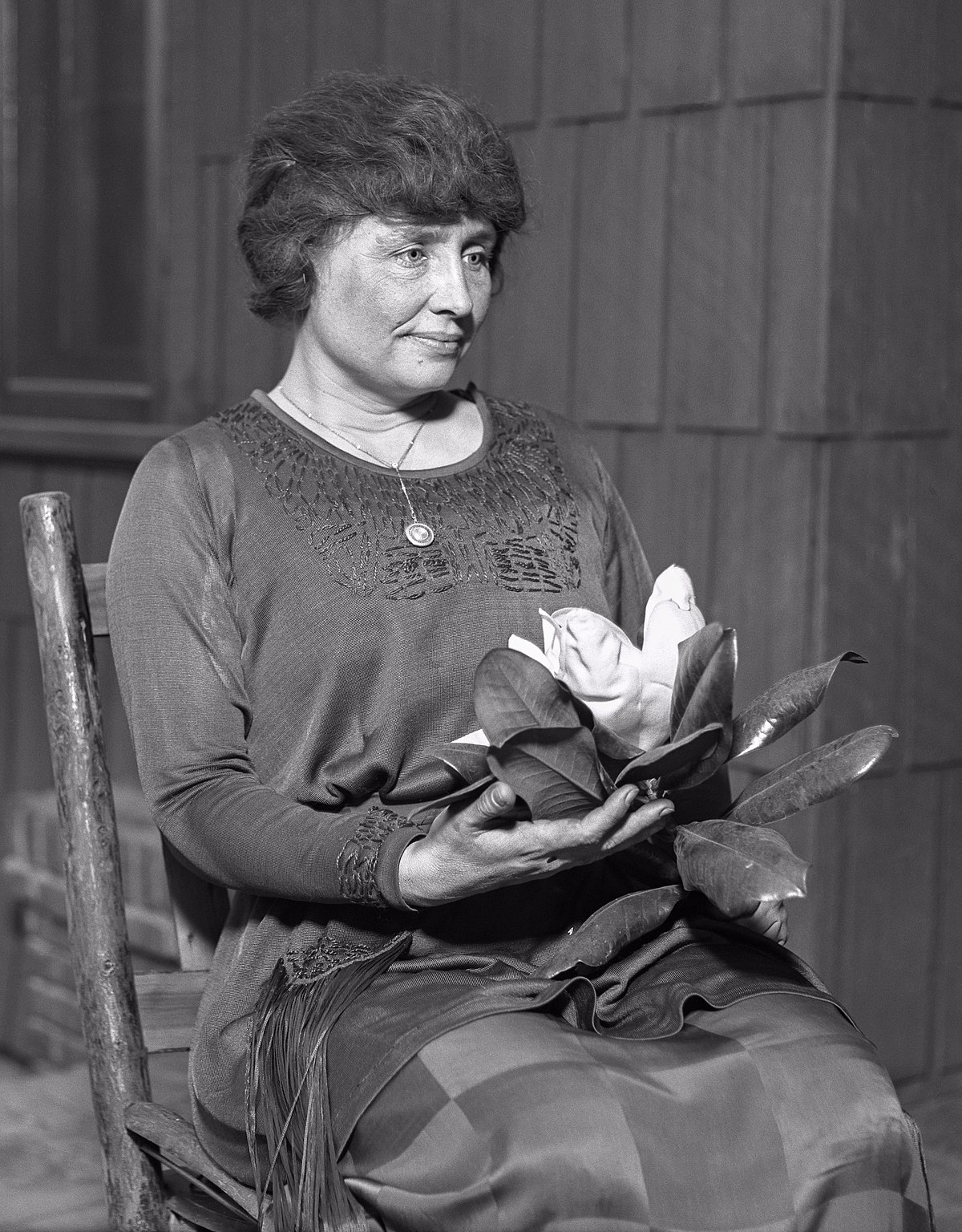Assistive technology
Assistive Technology (AT) is technology that is used by persons with disabilities to promote greater independence by enabling them to perform tasks that might otherwise be difficult or impossible. It can include mobility devices such as walkers and wheelchairs, as well as hardware, software, and peripherals that assist people with disabilities in accessing computers or other information technologies
Most people rely on technology like computers, smartphones, remote controls and microwaves to perform useful tasks in the daily lives. For people with physical or cognitive impairments or disabilities; AT can be critical in assisting them to learn and communicate, enabling them to participate in work and/or social environment, to achieve independence and improve their quality of life.
Some of the assistive devices

This large-print keyboard has tactile elements and special keys for persons with visual impairment.

This voter with a manual dexterity disability is making choices on a touchscreen with a head dauber.
Who can benefit from Assistive Technology?
According to the current statistics given by the National Council of Persons with disabilities , they’re 446,453 persons with disabilities in Rwanda.
Assistive devices could help them to participate more fully in all aspects of life (home, school, and community) and increases their opportunities for education, social interactions, and potential for meaningful employment. It creates greater independence and control for persons with disabilities.
They’re well known successful people who used Assistive devices to reach their goals in life like Stephen Hawking.

Stephen Hawking
is one of the most well-known physicists in the world, and he was able to achieve that in spite of being diagnosed with ALS when he was 21. He can now only speak with the assistance of a computer and has been a fulltime powerchair-user since the 1980s. His disability however has never been an excuse to give up on his desire to study the universe, specifically the framework of general relativity and quantum mechanics. His best-selling work, A Brief History of Time, stayed on the Sunday Times bestsellers list for an astounding 237 weeks.

Stevie Wonder
One of the most beloved singers alive today, Stevie Wonder is a musician, singer and songwriter who was born blind. He was born six weeks early. The blood vessels at the back of his eyes had not yet reached the front and aborted their growth, hence his blindness. Considered a child prodigy, Stevie signed with his first record label at age 11, Motown’s Tamla label,and he’s been performing since. Over his wildly successful music career, Stevie has recorded more than 30 U.S. top ten hits, including his singles “Superstition,” “Sir Duke” and “I Just Called to Say I Love You.”

Helen Keller
An American author, political activist and lecturer who is on the Alabama state quarter, Helen Keller was the first deaf and blind person to earn a college degree. Her story was famously portrayed in the play and film, The Miracle Worker, which documented how her teacher Anne Sullivan was finally able to develop a language that Helen could understand. Helen wrote a total of 12 published books, including her spiritual autobiography, My Religion, and was also a member of the Socialist Party in America, and campaigned heavily for women’s rights and other labor rights.



